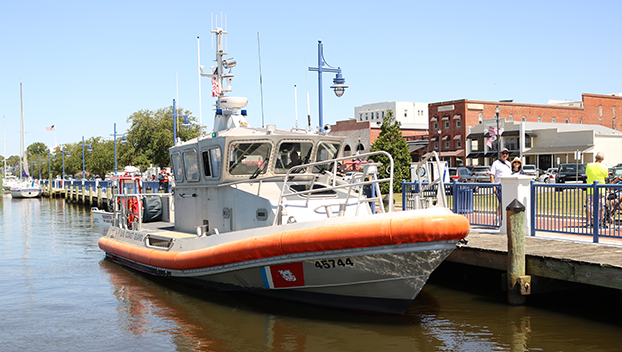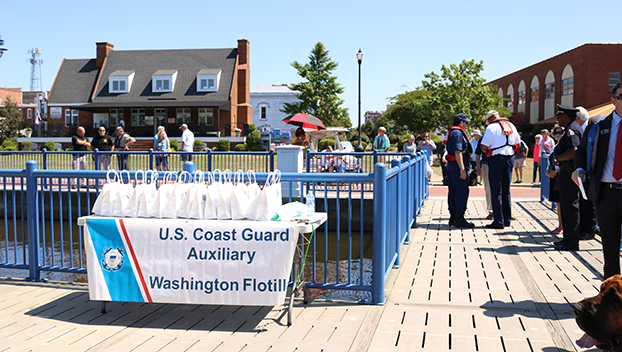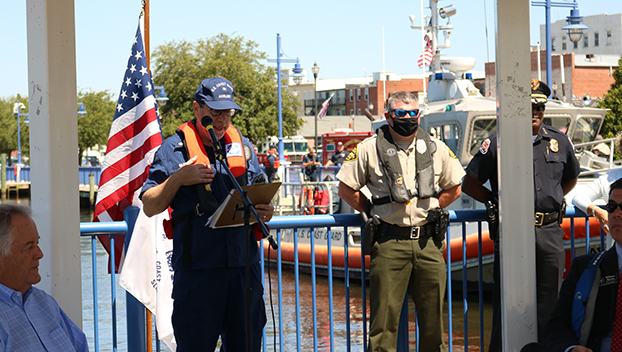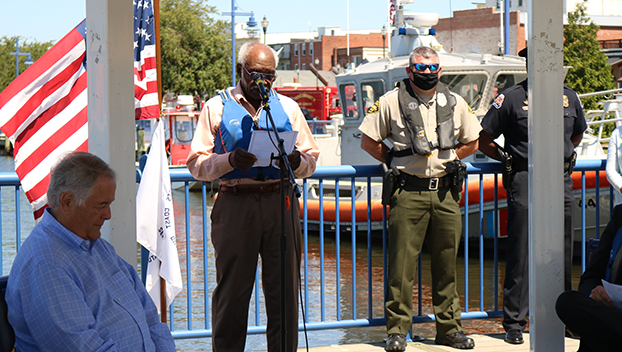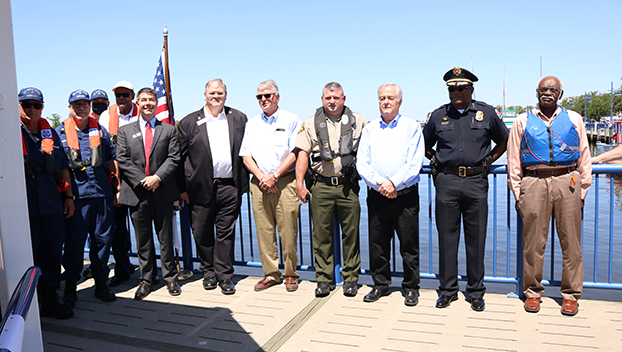Coast Guard Auxiliary proclaims National Safe Boating Week
Published 4:49 pm Monday, May 24, 2021
|
Getting your Trinity Audio player ready...
|
The Coast Guard Auxiliary celebrated the start of National Safe Boating Week during a ceremony held on the Washington waterfront Friday afternoon.
During the celebration, several Coast Guard Auxiliary members including Flotilla Commander David Silberstien and Vice Flotilla Commander Dale Benson spoke and several attendees were recognized, including Representative Keith Kidwell, Mayor James Latham of Bath, Mayor James Mobley of Chocowinity, Mayor P.J. Connelly of Greenville and Mayor pro tempore Richard Brooks of Washington.
Proclamations from the present mayors, as well as one from Governor Roy Cooper, were read aloud during the ceremony.
National Safe Boating Week occurs during the week of May 22 through May 29 as a lead up to Memorial Day weekend, which is often considered the unofficial start to the recreational boating season. The likelihood of accidents, mechanical failure and search and rescue situations increases as more boaters get out on the water.
According to the United States Coast Guard, the 2020 recreational boating season saw an increase of 24% in boating accidents and deaths compared to 2019. June, July and August of 2020 saw the highest rate of on-water deaths from recreational boating in 23 years. For individuals preparing to partake in watersports and boating activities, the Coast Guard recommends several safety precautions be made to lessen the likelihood of an accident.
The Coast Guard recommends boaters:
- Always wear a Coast Guard-approved life jacket while underway. 80% of boating deaths are due to drowning and 86% of those victims were not wearing a life jacket. People don’t typically have time to locate and don a life jacket during an actual emergency.
- Make sure your life jacket is properly fitted. People can slip out of ill-fitting life jackets when they hit the water, which immediately decreases their chances of survival.
- Don’t drink and boat. Aside from wearing a life jacket, not drinking and boating is one of the easiest ways to prevent accidental deaths on the water. People operating vessels under the influence of alcohol, drugs or impairing medication pose a serious threat to you and anyone else aboard. Don’t let your child ride in a boat operated by someone under the influence.
- Make a VHF radio your go-to means of communicating in an emergency. Cell phones may go out of range or lose battery power when needed most. Make sure you familiarize yourself with how to use it.
- Get a vessel safety check. The Coast Guard Auxiliary provides free boating safety checks. Get a free safety inspection from the Coast Guard Auxiliary to make sure you have all the gear and safety equipment required by your state and federal laws. Click here to find one near you.
- Take a boating safety course. The Coast Guard Auxiliary is one of many organizations that offer valuable boating safety courses ranging from electronic navigation to boat handling. Click here to register for a boating safety course.
- Know your navigation rules. Know how to properly navigate waterways and maintain lookouts to keep yourself and everyone else around you safe.
- Locator beacons can help us find you faster. Attaching a functioning EPIRB to your boat, or a PPIRB to your life jacket, and knowing how to use them can help rescuers find and help you.
- File a float plan.Tell someone where you’re going and when you’ll be back. Float plans provide a starting point to help find you if something happens.
- Check out the Coast Guard Boating Safety app. You can file a float plan, request assistance, request a vessel safety check, and report pollution and hazards to navigation.
- Look at the weather and tides before you head out. It might look like a nice day, but squalls and shifting tides can change suddenly.
- Dress for the water instead of the weather. Even if the forecasted temperatures are high, check water temperatures to be prepared in the case of an overboard accident.


